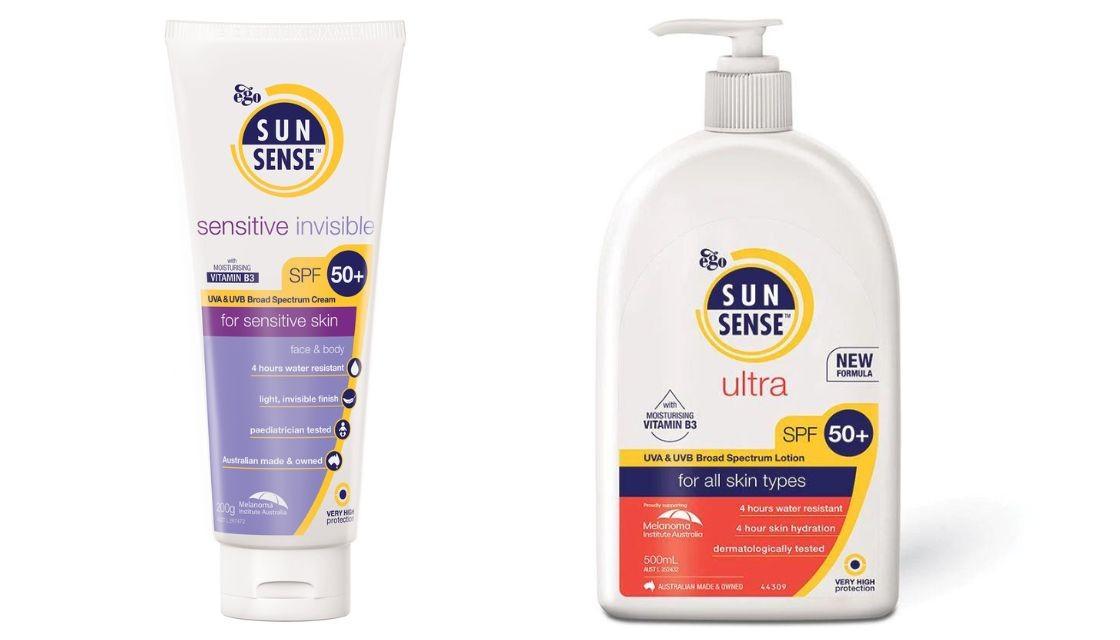An Australian skincare company has pleaded guilty to two charges under the Fair Trading Act for making unsubstantiated claims about the SPF of two of its sunscreen products.
Ego Pharmaceuticals, commonly referred to as Ego, has admitted to making unsubstantiated representations about the Sun Protection Factor (SPF) of its Ego Sunsense Ultra SPF 50+ and Ego Sunsense Sensitive Invisible SPF 50+, the Commerce Commission said in a statement on Tuesday morning.
Commerce Commission General Manager of Fair Trading, Vanessa Horne, said Ego accepts that between February 2019 and June 2020 it did not have a reasonable basis to make the SPF claims outlined on the two sunscreens.
"We opened an investigation into Ego following Consumer NZ's testing in 2019 and a subsequent complaint filed with the Commission," Horne said.
"In 2019 and 2020 Ego represented that both products provided 'very high' protection for consumers and were 'SPF50+', in accordance with an Australian and New Zealand Standard for sunscreen products.
"While it had reasonable grounds for those claims when the products were first released in New Zealand, the accumulation of test results between 2017 and 2019 meant that from February 2019 Ego ceased to have reasonable grounds to make those claims."
The Fair Trading Act requires businesses to ensure they have a proper basis for the claims they make about their products. Any claims made on a product must be able to be backed up and substantiated by the company.
The two sunscreens have not been distributed in the New Zealand market since December 2019, with Ego issuing a withdrawal notice for the products in 2020. The Australian-owned skincare manufacturer had previously supplied its products into New Zealand via a wholesale distributor.

The Commission encourages consumers with any concerns about their sunscreen to contact the supplier or manufacturer in the first instance. If consumers feel a business has breached the Fair Trading Act, they can file a complaint via the Commission's website.
"Consumers are entitled to rely on the accuracy of claims made about the products they buy and businesses should ensure that they have sufficiently credible information to hand to support the claims they make, when they make them," the Commission said.
"It is an offence for a trader to make a claim about a good or service without reasonable grounds for doing so, whether or not the claim is also proved to be false or misleading in breach of other provisions of the Fair Trading Act.
"If you can't back it up, don't say it."
Sentencing in the case against Ego has been scheduled for October 26, 2022.
The new Sunscreen Standard
The SPF claims made by Ego in this case were made with reference to the Australian and New Zealand Standard AS/NZS 2604:2012 which specifies classification, performance and marking requirements for sunscreens. This standard is commonly adopted in New Zealand, although compliance with any sunscreen standard has been voluntary up until this week.
A new mandatory safety standard for sunscreen supplied in Aotearoa comes into force on Thursday, September 8.
The new standard places obligations on businesses that import, manufacture and/or supply sunscreen products in New Zealand. A sunscreen product cannot be supplied in New Zealand without meeting the standard requirements.
In a statement, the Commerce Commission said it has been working with the industry to help communicate the new obligations for businesses, compliance requirements and implications for non-compliance.
In March this year, testing conducted by Consumer New Zealand revealed only one of eight sunscreens met the SPF claims on its label.
In a second batch of tests, Cancer Society Kids Pure Sun Lotion SPF50 was the only product that met the SPF claimed on its packaging.



